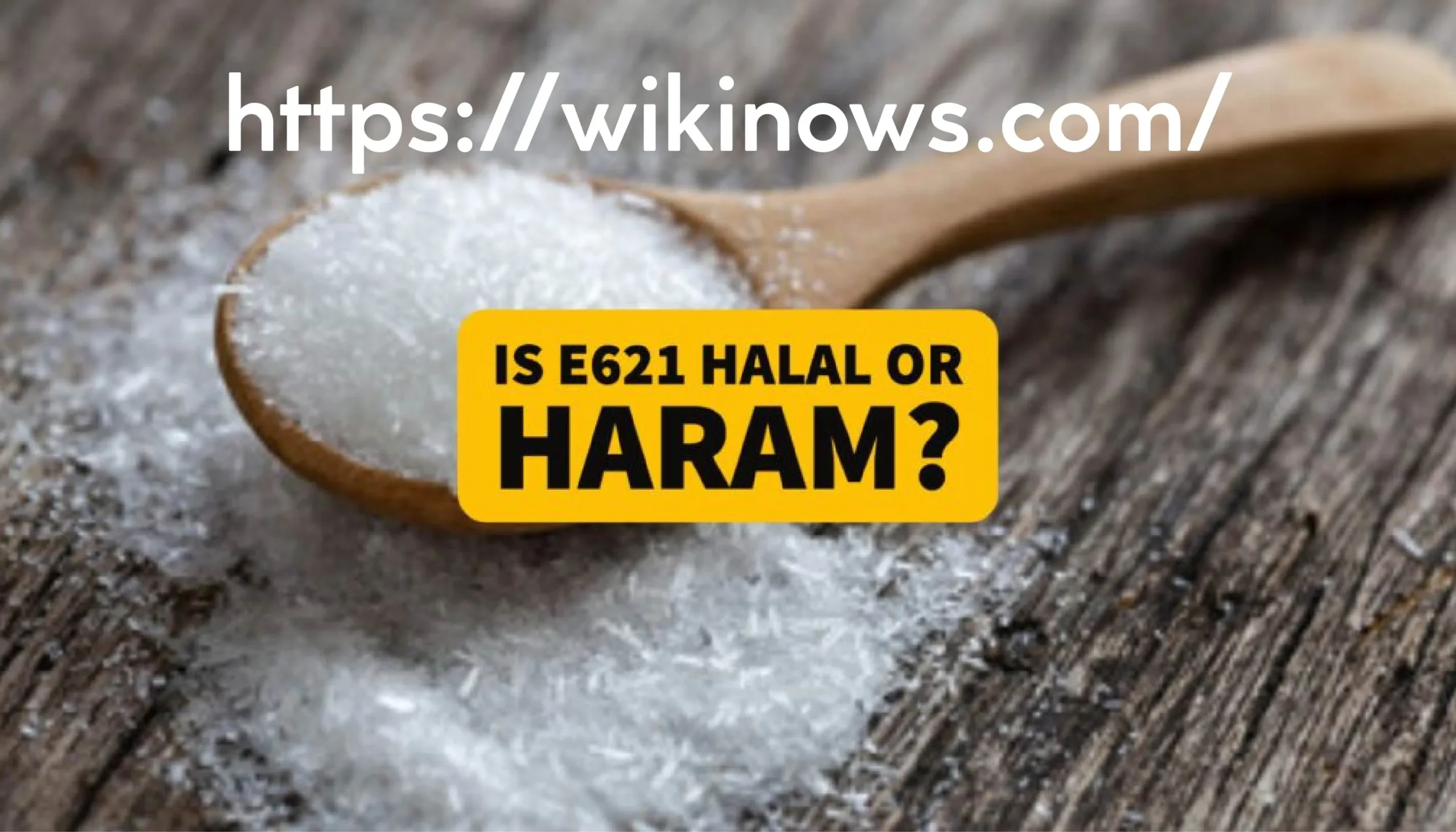In the world of food and dietary guidelines, the debate over e621, or monosodium glutamate (MSG), has sparked intense discussions, particularly within the Muslim community. As consumers become increasingly health-conscious and vigilant about the halal status of their food, the question of e621’s permissibility becomes more significant. In this comprehensive guide, we will explore the origins of e621, its uses in food, and most importantly, its status in the halal and haram spectrum, providing you with the information you need to make informed dietary choices. Join us as we navigate the complexities of e621, separating fact from fiction and uncovering what it means for those seeking to uphold halal principles in their diet.
Understanding e621 What is Monosodium Glutamate (MSG)?
Monosodium glutamate, commonly known as MSG, is a flavor enhancer widely used in the food industry. Code e621 in the list of food additives represents this. MSG is a sodium salt of glutamic acid, a naturally occurring amino acid. This compound is found naturally in various foods, such as tomatoes, cheese, and mushrooms. Still, it is also produced commercially through fermentation processes involving starch, sugar beets, sugar cane, or molasses.
In food production, MSG is valued for enhancing the umami flavor, one of the five basic tastes. Umami, often described as a savory or meaty taste, is especially popular in Asian cuisine but is also used in various processed foods, soups, and snacks. Despite its widespread use, MSG has been surrounded by controversies regarding its health effects and, more recently, its compatibility with halal dietary laws.
For Muslims, determining whether MSG is halal or haram involves understanding both its production process and the sources of the ingredients used. The concern stems from the possibility that the fermentation process or the raw materials might involve non-halal substances. Therefore, a deep dive into the production and sourcing of MSG is essential for making an informed decision.
The Halal and Haram Debate: What Does Islam Say?
Islamic dietary laws clearly state what is permissible (halal) and forbidden (haram). However, the status of certain food additives, such as e621, can sometimes fall into a gray area that requires careful consideration by scholars and experts. The primary concern for many Muslims regarding e621 is the ingredients’ source and the production method.
According to Islamic jurisprudence, any substance derived from halal sources and processed in a halal manner is permissible for consumption. Conversely, any substance derived from haram sources or processed in a manner that involves haram elements is forbidden. Regarding MSG, the key question is whether the raw materials and the fermentation process adhere to these principles.
Some Islamic scholars argue that MSG is halal because it is derived from natural sources and undergoes a fermentation process similar to that used for producing halal vinegar. They point out that the end product, MSG, is chemically identical regardless of the source of the raw materials. Therefore, as long as the raw materials are halal, the final product should also be considered halal.
On the other hand, other scholars express caution, emphasizing the need to thoroughly verify the entire production process to ensure no haram substances are involved at any stage. This perspective underscores the importance of certification by reputable halal authorities who can verify the compliance of MSG production with halal standards.
Health Implications of e621: Is MSG Safe to Consume?
Apart from the halal and haram debate, another significant aspect of the e621 discussion revolves around its health implications. MSG has been the subject of numerous studies and debates regarding its safety and potential health effects. Understanding these aspects is crucial for making an informed decision about its consumption.
MSG has been used as a food additive for over a century, and most scientific studies have concluded that it is safe for consumption in normal amounts. Regulatory agencies such as the U.S. Food and Drug Administration (FDA), the European Food Safety Authority (EFSA), and the World Health Organization (WHO) have all classified MSG as generally recognized as safe (GRAS). Despite this, some individuals report sensitivity to MSG, experiencing symptoms such as headaches, sweating, and nausea after consuming foods containing the additive. This phenomenon is often called “Chinese Restaurant Syndrome” or “MSG Symptom Complex.”
For those sensitive to MSG, limiting their intake and opting for foods that do not contain the additive is advisable. On the other hand, for the general population, consuming MSG in moderate amounts as part of a balanced diet is considered safe. It is also worth noting that naturally occurring glutamate in foods like tomatoes and cheese does not cause the same symptoms, suggesting that individual tolerance levels may vary.
The Role of Certification Why Halal Certification Matters
Given the complexities surrounding the halal status e621, obtaining certification from reputable authorities is essential for ensuring compliance with Islamic dietary laws. Halal certification involves thoroughly examining the entire production process, from sourcing raw materials to the final product, to ensure that no harmful substances are involved.
There are several internationally recognized halal certification bodies, such as the Islamic Food and Nutrition Council of America (IFANCA), the Halal Food Authority (HFA) in the U.K., and the Department of Islamic Development Malaysia (JAKIM). These organizations have stringent guidelines and conduct regular inspections to verify the halal status of food products, including additives like MSG.
For consumers, looking for halal-certified products is the most reliable way to ensure that their food adheres to Islamic dietary laws. Many manufacturers now seek halal certification to cater to the growing demand from Muslim consumers, making it easier to find halal options in the market.
Common Foods Containing e621 Where You Might Find It
Monosodium glutamate (e621) is a versatile additive used in various food products to enhance flavor. Awareness of common foods containing e621 can help consumers make informed choices and identify halal-certified alternatives when necessary.
Processed Foods
Many processed foods, such as canned soups, instant noodles, and frozen meals, contain e621 to boost their savory flavor. These convenience foods are popular for their ease of preparation and taste but often rely on additives like MSG for flavor enhancement. Consumers should check labels for halal certification when purchasing such products.
Snacks
Many savory snacks, including chips, crackers, and flavored nuts, use e621 to enhance their taste. These snacks are often marketed as irresistible due to their umami flavor, which is intensified by the presence of MSG. For those seeking halal options, looking for halal-certified brands, or opting for naturally flavored snacks can be a good choice.
Restaurant and Fast Food
MSG is commonly used in restaurant and fast food dishes, particularly Asian cuisine. Chinese, Japanese, and Korean restaurants often use e621 in their soups, sauces, and stir-fries to enhance the umami flavor. Consumers can inquire about using MSG and choose restaurants that offer halal-certified menu options when dining out.
Alternative Flavor Enhancers Natural and Halal Options
For those concerned about the halal status of e621 or looking for natural alternatives, several options are available to enhance food flavor without using MSG. These alternatives align with halal dietary laws and offer health benefits.
Natural Umami-Rich Ingredients
Ingredients naturally rich in umami flavor, such as tomatoes, mushrooms, seaweed, and soy sauce, can enhance the taste of dishes. These ingredients are widely available and can be used in various cuisines to achieve a savory flavor without artificial additives.
Spices and Herbs
Aromatic spices and herbs, such as garlic, onion, ginger, and thyme, can add depth and complexity to the flavor of dishes. Combining these natural flavor enhancers can create rich and satisfying meals that adhere to halal principles.
Halal-Certified Flavor Enhancers
Some manufacturers produce halal-certified flavor enhancers that can be substituted for e621. These products are designed to comply with Islamic dietary laws and provide a reliable alternative for those seeking halal options.
Conclusion
The debate over e621 (monosodium glutamate) being halal or haram is complex, involving considerations of both religious dietary laws and health implications. While some scholars argue that MSG is halal if derived from halal sources, others emphasize the importance of thorough verification by reputable authorities. For consumers, seeking halal-certified products and exploring natural flavor enhancers can help maintain adherence to halal principles while enjoying flavorful meals.
Whether you include e621 in your diet or opt for alternatives, staying informed and making conscious choices is key to upholding your dietary values. For further guidance and personalized recommendations, consider consulting with halal certification bodies or seeking advice from knowledgeable scholars in your community.




